
Ferdinand I was Emperor of Austria from March 1835 until his abdication in December 1848. He was also King of Hungary, Croatia and Bohemia, King of Lombardy–Venetia and holder of many other lesser titles. Due to his passive but well-intentioned character, he gained the sobriquet The Benign or The Benevolent.

Albrecht Theodor Emil Graf von Roon was a Prussian soldier and statesman. As Minister of War from 1859 to 1873, Roon, along with Otto von Bismarck and Helmuth von Moltke, was a dominating figure in Prussia's government during the key decade of the 1860s, when a series of successful wars against Denmark, Austria, and France led to German unification under Prussia's leadership. A moderate conservative and supporter of executive monarchy, he was an avid modernizer who worked to improve the efficiency of the army.
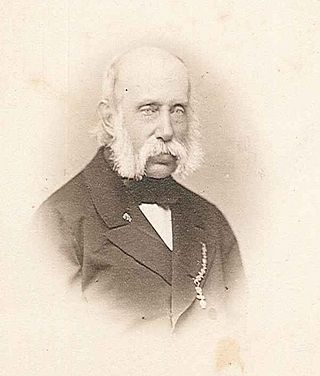
Archduke Franz Karl Joseph of Austria was a member of the House of Habsburg-Lorraine. He was the father of two emperors: Franz Joseph I of Austria and Maximilian I of Mexico. Through his third son Karl Ludwig, he was the grandfather of Archduke Franz Ferdinand of Austria – whose assassination sparked the hostilities that led to the outbreak of World War I.

Edwin Karl Rochus Freiherr von Manteuffel was a Prussian Generalfeldmarschall noted for his victories in the Franco-Prussian War, and the first Imperial Lieutenant of Alsace–Lorraine from 1879 until his death.

Count Johann Bernhard von Rechberg und Rothenlöwen was an Austrian statesman and a member of an old Swabian House of Rechberg.
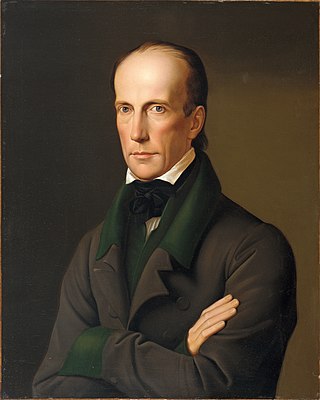
Archduke John of Austria, a member of the House of Habsburg-Lorraine, was an Austrian field marshal and imperial regent (Reichsverweser) of the short-lived German Empire during the Revolutions of 1848.

William, Duke of Brunswick, was ruling duke of the Duchy of Brunswick from 1830 until his death.

Prince Frederick Charles Alexander of Prussia was a younger son of Frederick William III of Prussia. He served as a Prussian general for much of his adult life and became the first Herrenmeister of the Order of Saint John after its restoration as a chivalric order. Nevertheless, he is perhaps remembered more often for his patronage of art and for his sizable collections of art and armor.

Karl Anton, Prince of Hohenzollern-Sigmaringen was the last prince of Hohenzollern-Sigmaringen before the territory was annexed by the Kingdom of Prussia in 1849. Afterwards he continued to be titular prince of his house and, with the death of the last prince of Hohenzollern-Hechingen in 1869, of the entire House of Hohenzollern. He served as Minister President of Prussia from 1858 to 1862, the only Hohenzollern prince to hold the post. His second son, Karl, became king of Romania. The offer of the throne of Spain to his eldest son, Leopold, was one of the causes of the Franco-Prussian War, which led to the unification of Germany and the creation of the German Empire.

Karl, Prince of Leiningen, KG was the third Prince of Leiningen and maternal half-brother of Queen Victoria. Leiningen served as a Bavarian lieutenant general, before he briefly played an important role in German politics as the first Prime Minister of the Provisorische Zentralgewalt government formed by the Frankfurt Parliament in 1848.
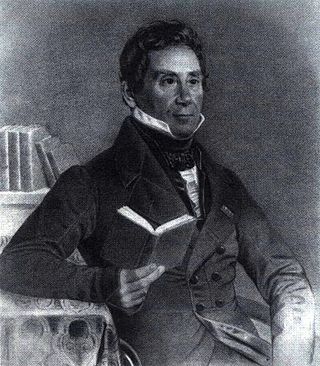
Karl Friedrich Nebenius was a Baden minister and author of their 1818 constitution.
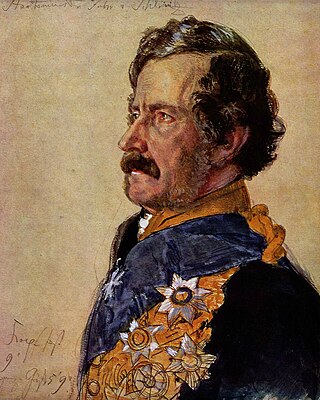
Alexander Gustav Adolf Graf von Schleinitz was the Foreign Minister of Prussia from 1858 to 1861 and minister for the royal household from late 1861 to his death.

Arthur Adolf, Count of Posadowsky-Wehner, Baron of Postelwitz was a German conservative statesman. He served as the secretary for the Treasury (1893–1897), secretary of the Interior, vice-chancellor of the German Empire and Prussian minister of State (1897–1907).

Heinrich Hermann Josef Freiherr von Heß, was an Austrian soldier and field marshal, who entered the army in 1805 and was soon employed as a staff officer on survey work.
Friedrich Karl Walter Degenhard Freiherr von Loë was a Prussian soldier and aristocrat. Loë had the distinction of being one of the few Roman Catholics to reach the rank of Generalfeldmarschall in the Prussian and imperial German armies.

Carl Theodor Georg Philipp Welcker was a German legal scholar, law professor, politician, and journalist.
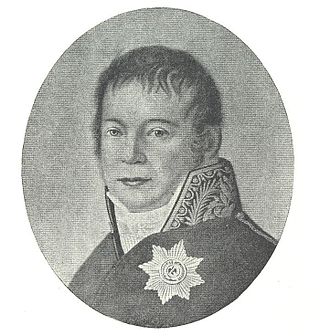
Ernst Marschall von Bieberstein served as Chief Minister (Staatsminister) of the Duchy of Nassau between 1806 and 1834. Between 1806 he was one of two chief ministers of Nassau, but after the resignation of Hans Christoph Ernst von Gagern, Marschall von Bieberstein became in effect the sole leading politician in Nassau in 1809. During his early years he pursued a liberal course, but as conservatism returned to favour after the fall of Napoleon, his approach became strikingly more "restorationist".

Gustav Friedrich Beyer was a Prussian general and war minister of the Grand Duchy of Baden.
Adolf Marschall von Bieberstein was a Baden politician and diplomat.

















